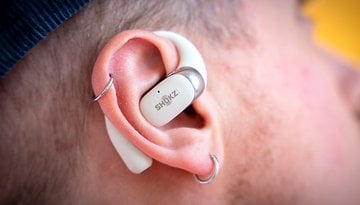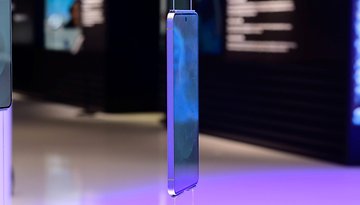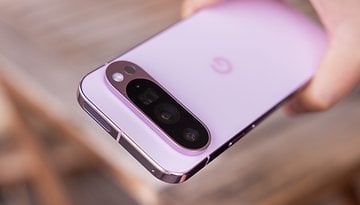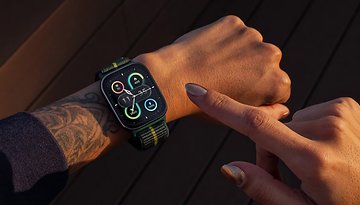The Best Portable Projectors: What to Look for in 2024
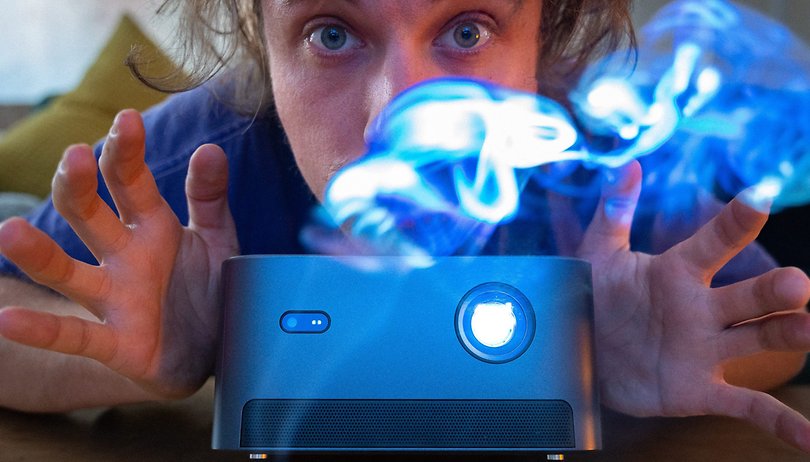

A large cinema screen in a small, compact, and portable form factor? That's what mini projectors are all about, devices that fit easily in your home theater drawer for storage or can be carried with you on the go. To help you choose the best mini projector in 2024, we explain what to look for when buying one and pick different models that are affordable.
The best portable projectors in 2024 compared
The best mini projectors to choose in 2024
For the longest time, projectors were huge, heavy, and had a long cool-down period after use. Thanks to powerful LED lamps and laser technology, however, high-performance portable projectors can be easily transported in a backpack or stored in a drawer. This was not only convenient, but it also saved space in the living room.
These mini projectors are also energy-saving and often feature integrated smart TV functions. In other words, you can either connect your smartphone directly to the portable projector or use native apps for Netflix. Amazon Video, and others.
Editor's choice: Xgimi Halo+
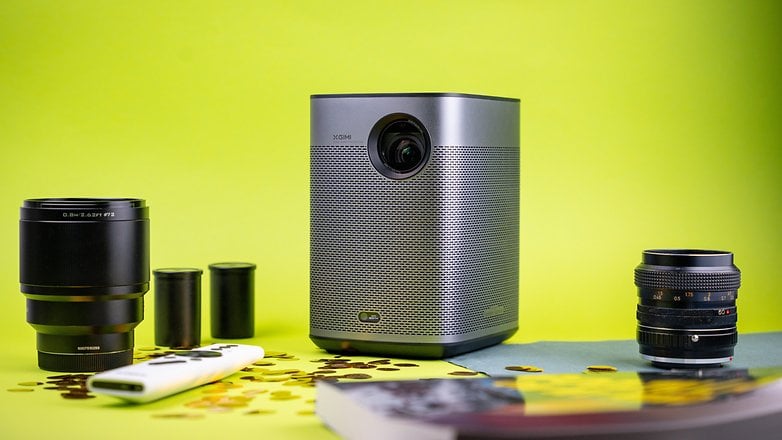
Read the Xgimi Halo+ full review
The Xgimi Halo+ is a portable mini projector that offers a crisp, bright image thanks to its 1080p resolution and 700 ISO lumens of brightness. Weighing a mere 1.6 kg, it's easy to carry around and its 2.5-hour battery life makes it an ideal companion for outdoor cinema sessions. Built-in Harman-Kardon speakers deliver good ambient sound.
As far as connectivity is concerned, the Halo+ runs on Android TV, enabling content to be streamed via Wi-Fi. However, it should be noted that Netflix is not natively compatible due to licensing issues. It is therefore necessary to use Chromecast or HDMI to take advantage of Netflix. The projector's OS can lag at times, and the 2 GB RAM makes things a little slow occasionally.
Despite these few drawbacks, the Xgimi Halo+ offers impressive image quality, good battery life, and a compact design. It is therefore recommended for those who are looking for a good mini projector for both stationary and mobile use.
Good
- Sharp, bright and colorful projector image
- Stereo speakers simulate good surround sound
- Internal battery lasts up to 2.5 hours
- Whisper-quiet operation
Bad
- Stand insufficient in everyday use
- Netflix is missing natively due to license problems
- Neither bag nor lens cover included in the scope of delivery
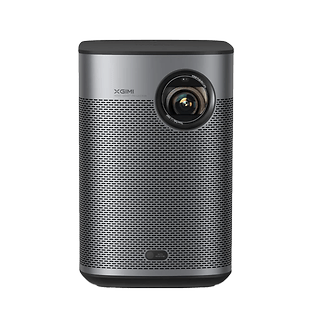
Best value-for-money: Dangbei Neo
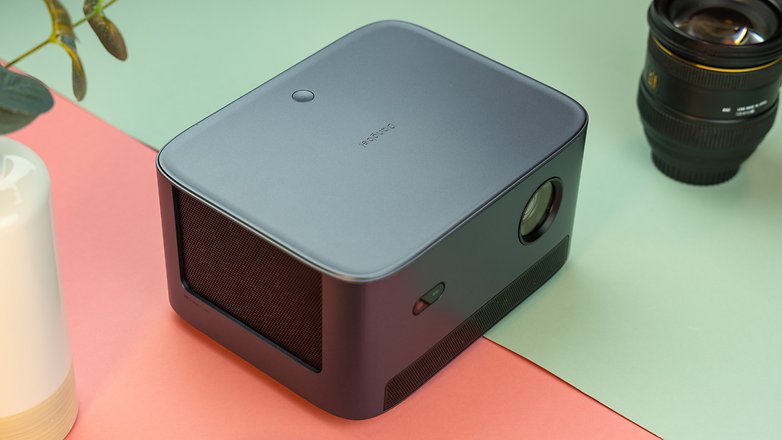
Read the Dangbei Neo full review
The Dangbei Neo is a mini DLP projector that offers excellent image quality, good audio quality, and smooth performance. In terms of design, the Neo is compact and lightweight, making it easy to transport.
The Neo's image quality is exceptional with Full-HD resolution. The image is bright, and the colors are rich. In terms of connectivity options, the Neo runs on Linux and does not have access to the Google Play Store. It does, however, offer a wide variety of wired and wireless connections.
The Neo's built-in speakers produce surprisingly good sound. However, you'll have to accept a few compromises, such as the lack of some important video streaming services, optical zoom, and a built-in battery, as well as the impossibility of adjusting its tilt on a table.
The Dangbei Neo offers good performance, and with its $500 price tag on Amazon, it's a real champion when it comes to value-for-money.
Good
- Good picture quality with auto-lock
- Surprisingly good sound
- Quiet operation
- Many connectivity options
Bad
- Important streaming services are missing
- No optical zoom
- No integrated battery
- No 3.5 mm audio jack output
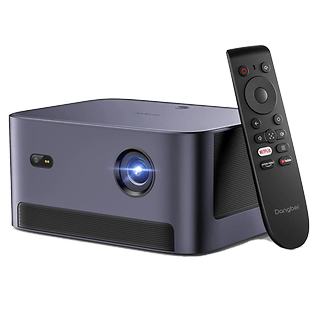
The best low-cost mini projector: Technaxx TX-127
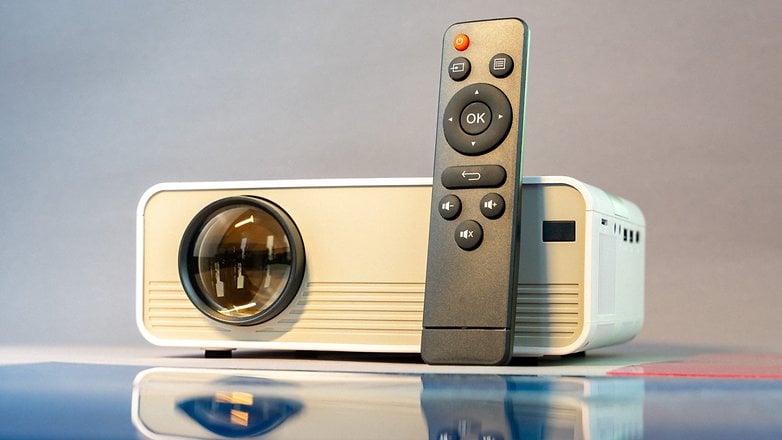
Read the Technaxx TX-127 review
The Technaxx TX-127 is an affordable mini projector that is great for occasional use. Priced at around $110, it offers an LED life of 40,000 hours, 720p resolution, and a projection size of up to 150-inch.
The TX-127's design is compact and portable. Image quality is inferior to other portable projectors on the market, but remains acceptable at this price point. In terms of connectivity, it features USB and microSD ports for playback of multimedia files. Power consumption is low, sipping less than 50W when in use.
If you can live with the lack of connectivity features, built-in battery, and less-than-stellar audio quality, the Technaxx TX-127 is a suitable option for those looking for an entry-level projector to use from time to time.
Good
- Very affordable
- Wide range of connectivity options
- Media player via USB and microSD
- Low power consumption
Bad
- Strong edge blurring in the projector image
- Limited locking (vertical ±15°)
- 3 W speaker is sorely underpowered
- No smart features and no built-in battery
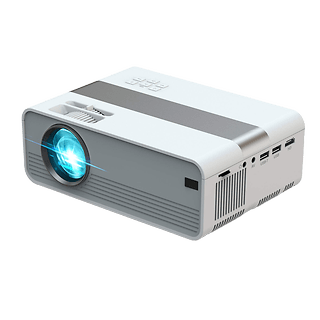
Buying advice: What do you look for in a mini projector?
Projectors and technology
At the beginning of this article, we briefly mentioned old projectors. Most projectors of yore normally came with a built-in light source, with manufacturers relying on LED technology or laser systems. What is important in every projector is the luminosity, which manufacturers specify as lumens or ANSI lumens.
While lumens refer to the luminosity of the light source itself, ANSI lumens are measured off a reflective surface. The rule of thumb is this: projectors that are rated 5,000 lumens or fewer are best used only in the evening, at night, or in a very dark room.
In terms of projection technology, a rough distinction can be made between LCD and DLP. Short-throw projectors in a portable form factor are extremely rare, so we will exclude these models from the equation. For DLP projectors, the light beam from the source is beamed through a color filter onto a DMD chip.
Countless small mirrors produce the brightness values, which are magnified via the projection lens to produce the final image. DLP projectors generally have a smaller case, and this technology is also relatively affordable. The disadvantages include black levels that are normally not as well-defined as other technologies, and these projectors tend to be noisier with the lack of lens shift or zoom capability.
LCD projectors have none of these disadvantages, but the technology is far more complex. This is because the light is split between several chips via mirrors and a prism before being combined to create the final image. This takes up more space but enables better color values, higher contrasts, and quieter operation. In addition, manufacturers can also enable optical zoom and lens shift is possible if required.
As manufacturers focus on compact chassis for mini projectors, DLP technology can be found in most devices. However, pay attention to the specifications such as the resolution, brightness, and contrast ratio to be able to assess the image quality before buying.
Auto-locking and keystone correction
Speaking of optical zoom, you will normally have to live without it when buying a mini projector. Without optical zoom (which works similarly to a camera lens), the image size changes depending on the distance between the projector and the wall. If you cannot set up your projector at a different distance from the wall, you can normally use a digital zoom, but this reduces the display quality.
A major advantage of modern projectors, however, is the auto-locking function including keystone correction. Models such as the Samsung Freestyle (review) can be set up at very flexible angles to the wall.
The projector then uses these sensors to independently measure how it needs to adjust the image so that the finished product is displayed in an undistorted manner on the screen or wall. This function is really practical and can usually be readjusted later if required.
The same applies to autofocus, which all modern projectors should be equipped with.
Size and weight
If you bring your mini projector along, you should pay attention to its size and weight. Manufacturers typically state these in the technical specifications, and you can also find the dimensions in the table at the beginning of this buying guide. While not all sizes would suit you, we do think that it is better to pay more attention to the weight.
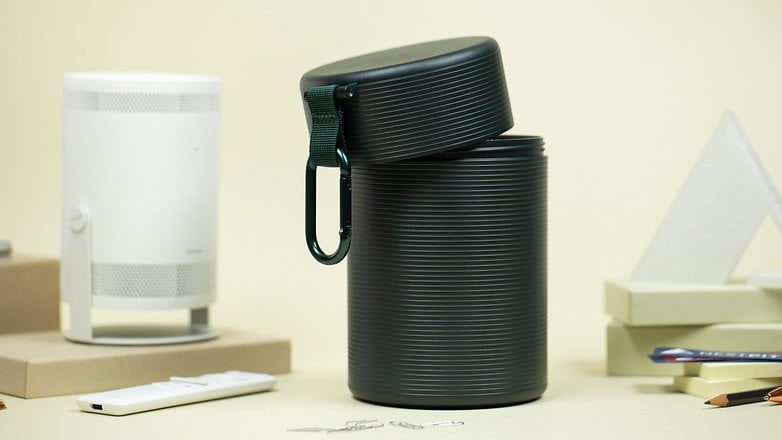
The reason behind this? If projectors are too light, it can be challenging to set them up properly at times. Without screwing them down using tripods or something similar, lightweight portable projectors can easily topple over due to the weight of the cables. This is annoying if you have to constantly adjust the projector again. Don't pay too much attention to the weight if you are not carrying the projector to the office every day.
Battery or wired?
A white wall and a mini projector—with selected models, that's all you need to watch a movie outdoors in summer. Whether on the terrace or in the park, a built-in rechargeable battery is always a plus point when it comes to portable projectors. The runtimes of some models are normally sufficient for a Netflix movie, but you should also pay attention to a few things here.
Unfortunately, most batteries in projectors are permanently installed in the chassis. This not only prevents you from carrying several spare batteries when you travel, it also reduces the longevity of the projector, since batteries naturally lose capacity over time.
Furthermore, when using the projector outdoors, you should consider how you will be able to upload content to it, which brings us to the next topic...
Connectivity and connected features
Having a wide range of connectivity options is practical for any projector. Your projector of choice should have at least one HDMI input and a slot for a USB thumb drive.
This allows you to connect streaming sticks such as the Fire TV Stick from Amazon or a Google Chromecast to the projector. On the other hand, you can also watch movies without any internet access.
If you want to keep yourself entertained in the park, you don't have to launch a hotspot on your smartphone and sacrifice valuable data volume.
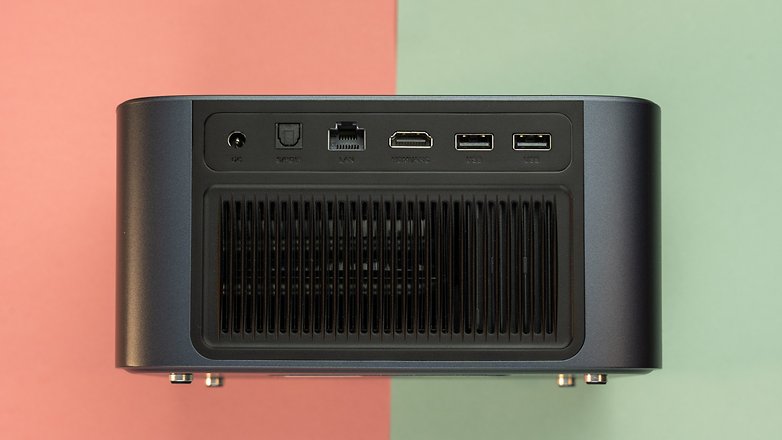
However, the practicality of a pre-installed, smart operating system never ceases to amaze us. With Android TV, you can access streaming services without forking out money for any additional devices. You are welcome to binge-watch movies and content via YouTube. The possibilities depend on the number of available apps. As for the insanely expensive Formovie Theater (MSRP of $3,499), compatibility with Netflix is not guaranteed even in premium models.
Another important tip to look out for: Does it have a 3.5 mm audio jack to connect to external speakers? Although most models also feature Bluetooth connectivity, the latency can be too long at times. If you want to avoid synchronization issues between the image and sound, you should therefore connect the portable projector to external speakers via a cable.
Bags, tripods, and other practical accessories
For a mini projector, it is advisable to include a few accessories in your budget. A carry bag or case to bring with you or a tripod for secure positioning is actually practical for every model mentioned.
There you have it! Do you have an alternative recommendation for an affordable mini projector, or is there a preferred high-end model?















